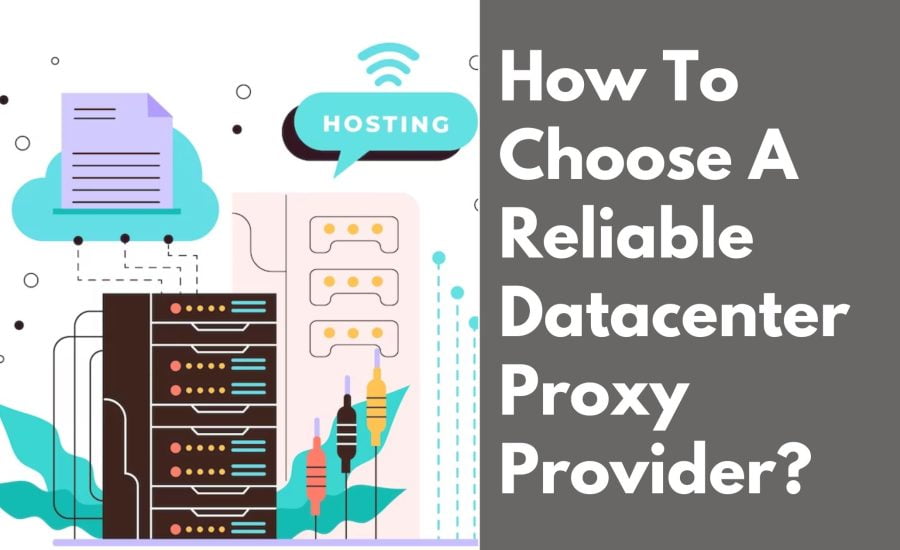What is a proxy server?
A proxy server is a computer or software system that acts as an intermediary between a user’s device and the internet. When a user requests a website or other online content through a proxy server, the request is first sent to the proxy server, which then forwards the request to the website on behalf of the user.
The website responds to the proxy server, which then forwards the response to the user. This process helps to hide the user’s IP address and location from the website, as the website only sees the IP address of the proxy server.
Buy proxy servers can be used for various purposes, such as enhancing online security and privacy, bypassing content filters and censorship, accessing geo-restricted content, and optimizing network performance. There are several types of proxy servers, including HTTP proxies, SOCKS proxies, and SSL proxies, each with its own features and functionality.
Here are some additional information about each of the key factors to consider when choosing a reliable proxy provider:
1. Reputation
A proxy provider’s reputation is an essential factor to consider when evaluating its reliability. Look for a provider with a solid reputation in the industry. You can research a provider’s reputation by reading online reviews, looking at ratings on review sites, or checking the provider’s social media pages. Additionally, you can check if the provider has been featured in industry publications or if they have won any awards for their service.
2. Reliability
The reliability of a proxy provider is another critical factor to consider. A reliable proxy provider like Proxiesforrent should offer high uptime, meaning that their servers are available for use most of the time. Providers should have minimal downtime or maintenance periods. Look for providers that offer a service level agreement (SLA) guaranteeing a certain level of uptime, such as 99.9% uptime.

3. Speed
The speed of a datacenter proxy provider is another critical factor to consider. Faster servers and low latency result in a better browsing experience. When considering a provider’s speed, look at their server locations, server specifications, and server load. Some providers offer a speed test on their website that you can use to test the speed of their servers.
4. Security
Security is also an essential consideration when choosing a reliable proxy provider. Look for providers that offer secure proxies that use protocols such as HTTPS and SOCKS5. These protocols encrypt your data and protect your online privacy. Additionally, some providers offer additional security features such as two-factor authentication and IP address whitelisting.
5. Customer support
Customer support is another critical factor to consider when evaluating a proxy provider’s reliability. Our reliable service should offer multiple channels of communication, including phone, email, and live chat. They should also have a responsive support team that can quickly resolve any issues that may arise.

6. Cost
The cost of a proxy provider is also a critical consideration. While price should not be the sole determining factor, you should compare the pricing of different providers to ensure you are getting good value for your money. Some providers offer tiered pricing based on usage, while others offer flat-rate pricing. Make sure to factor in any additional features or services that may be included in the pricing.
7. Location
The location of a proxy provider’s servers is also an important consideration. If you need to access content that is geo-restricted, choose a provider that offers proxies in the location you need. Additionally, if you need to access content from multiple locations, choose a provider that offers proxies in multiple locations.
Conclusion
Overall, when choosing a reliable proxy provider like Proxiesforrent, You should evaluate the provider based on its reputation, reliability, speed, security, customer support, cost, and location. Considering these factors, you can find a provider that best meets your needs and offers reliable, secure, and fast private proxy services.
FAQ
1. What are some common use cases for proxies?
Common use cases for proxies include web scraping, data mining, online security, accessing geo-restricted content, and hiding your IP address for anonymity online.
2. Why do I need a reliable proxy provider?
A reliable proxy provider ensures that you can access the internet securely and without interruption, which is important for a variety of use cases, including web scraping, data mining, online security, and accessing geo-restricted content.
3. What are the risks associated with using a proxy provider?
The risks associated with using a proxy provider include data leaks, breaches of privacy, and exposure to malware and other online threats. To mitigate these risks, choose a reliable provider that offers secure protocols and transparent privacy policies, and use additional security measures such as two-factor authentication and IP address whitelisting.
4. What are some common features offered by reliable proxy providers?
Some common features offered by reliable proxy providers include high uptime guarantees, fast speeds, secure protocols such as HTTPS and SOCKS5, multiple server locations, customer support, and transparent pricing.



